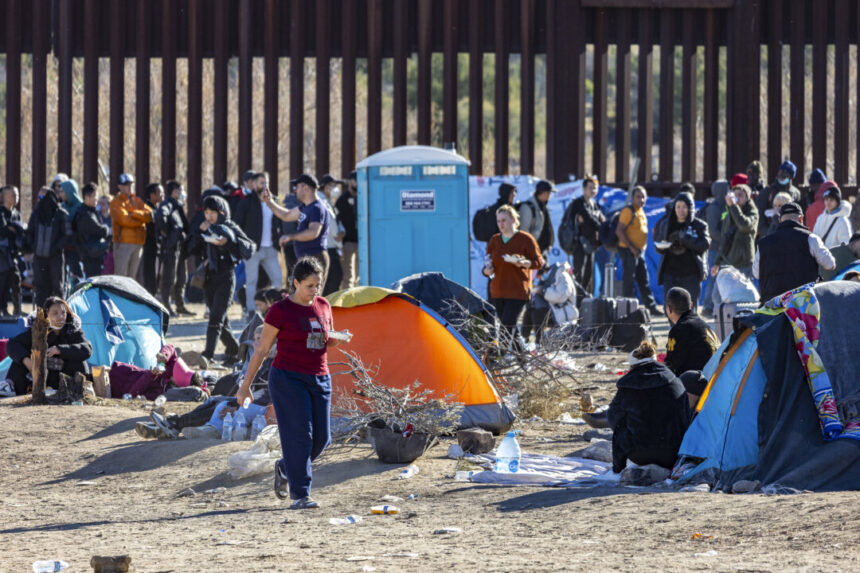Starting on August 19, immigrants can begin applying for protection under a new rule unveiled by the U.S. Department of Homeland Security (DHS). This rule is estimated to safeguard around 550,000 illegal immigrants from deportation.
The DHS is utilizing the parole authority granted by the Immigration and Nationality Act to provide protection to certain illegal immigrants, particularly those married to U.S. citizens, as directed by President Joe Biden.
According to the DHS, granting parole in place to eligible noncitizens will help in keeping families together and promoting unity and stability. Additionally, this move is expected to enhance economic prosperity, strengthen diplomatic relationships, and alleviate the strain on government resources.
The rule applies to spouses of U.S. citizens who have resided in the U.S. for at least 10 years as of June 17. These individuals must not pose a threat to national security, public safety, or border security.
Approximately 500,000 out of 765,000 noncitizens married to U.S. citizens without lawful immigration status are believed to be eligible for this parole extension. Another 50,000 children of these immigrants may also apply for protection if they meet certain criteria.
Parole provides temporary relief from deportation, allowing noncitizens to extend their stay or pursue permanent legal status. The move has received praise from Democrats, with some experts raising concerns about its legality.
Despite potential legal challenges, the DHS maintains that it has the authority to grant parole in place under the Immigration and Nationality Act. Various groups, including the Florida Immigrant Coalition, have applauded the protection, emphasizing its benefits for families.
Please rewrite the following sentence to be more concise:
“I am currently in the process of analyzing the data to determine the best course of action.”
Source link




